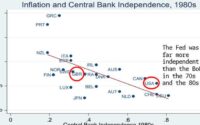Americans’ retirement confidence ‘the lowest it’s ever been’
The share of Americans who think they’ll be financially prepared for a comfortable retirement dropped sharply this year, according to a new study out this week.
BlackRock found that only 56% of folks say they feel on track for retirement, down from 63% in 2022 and 68% in 2021. The group whose confidence waned the most was Gen Z, who were also more likely than baby boomers to say they would consider selling investments during a market downturn.
The decline in confidence underscores how market volatility and inflation have made people more worried about running out of money — now and in the future, Anne Ackerley, head of BlackRock’s retirement group, told Yahoo Finance Live (video above).
“So we’ve been doing this survey read on retirement for eight years and this is the lowest it’s ever been,” Ackerley said. “So what’s driving this? Well, it’s really the market environment. I think anybody who lived through last year, with both stocks and bonds being down, it was just a really hard year. And I think people are reflecting that in terms of their confidence in retirement.”
Read more: High-yield savings account vs. investing: Which is right for you?
Still, Ackerley was quick to point out that it is important for workers to maintain the savings course even as concerns grow — something Americans actually did, the survey found, a bright spot among the results.
“Workers did not reduce their contributions,” she said. “So one of the most important things during this market volatility, these hard times, is to keep contributing. And we actually saw that people did that. Instead, they maybe didn’t go on vacation, they maybe didn’t buy a large item. So they reduced their spending so they could continue to contribute.”
Another step to take — or, actually, not to take — is dumping investments when they lose value. Ackerley noted that one “disturbing” finding from the survey was that 60% of Gen Zers said they might consider selling during a market downturn, while only 20% of boomers said that.
“They just haven’t lived through as many market cycles as maybe some more experienced older workers,” she said. “Please, please, please don’t sell. Ride through it. Continue to contribute. Continue to dollar cost average.”
As for the oldest working generation, more than a third of boomers were considering delaying retirement as a way to get back on track.
“In an ideal world, people would retire at the age they want to,” Ackerley said. “But given this market volatility, it may not be the worst thing to think a little bit about delaying retirement. If they can. Not everybody can, continuing to earn some money and not spend.”
A recent study from the nonprofit Transamerica Center for Retirement Studies found that working was an integral part of many workers’ retirement plans. The survey of 5,725 employees found 55% of workers plan to work after they retire, including almost 20% who plan to work full time and over a third who plan to take on part-time jobs. In fact, 15% of all workers expect their primary source of retirement income to come from working.
Another way to boost income in retirement, Ackerley said, is to delay taking Social Security, which will increase your Social Security payment when you do claim.
For instance, a worker who retires as early as 62 — before his or her full retirement age — may get up to 30% less in monthly benefits to account for the longer time that worker receives benefits. That decrease is usually permanent. If the worker waits until age 70 to claim, the worker earns delayed retirement credits, which can add up to 8% extra for each year between full retirement age until 70 when the credits stop accruing.
“So there are things people can do to be back on track,” Ackerley said. “But we need to realize this is a tough time for people, with respect to retirement savings.”
Janna Herron is the personal finance editor for Yahoo Finance. Follow her on Twitter @JannaHerron.
Click here for the latest personal finance news to help you with investing, paying off debt, buying a home, retirement, and more
Read the latest financial and business news from Yahoo Finance
[ad_2]
Source link


